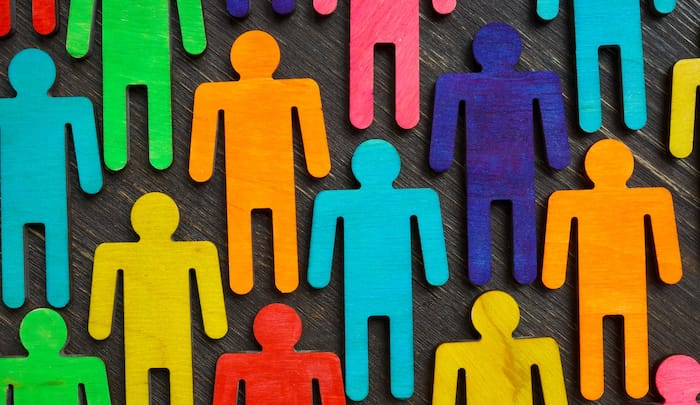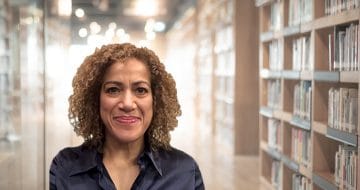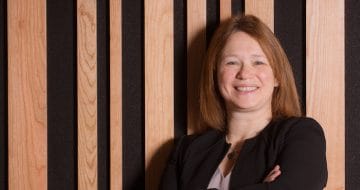Ahead of his virtual appearance at LegalEdCon 2021 next week, Legal Cheek Careers speaks to Patrick Johnson, ULaw’s inaugural director of equality, diversity and inclusion

The University of Law (ULaw) recently stepped up its commitment towards diversity and inclusion by appointing Patrick Johnson as its inaugural director of equality, diversity and inclusion (EDI). As an indication of the seniority of the role, Johnson joins the university’s executive board, reporting directly to the Vice-Chancellor.
“That was the clincher for me in taking on the job because it shows the university is serious about the change it wants to bring about,” says Johnson, ahead of his virtual appearance at LegalEdCon 2021 next week. “Sometimes the role can be lost within an organisation, but that was clearly not the case here.”
Johnson may be new to the legal sector but he has a wealth of higher education experience. He joined ULaw after nearly 20 years at Manchester University, where he led on EDI for 13 years. He set up a variety of projects including summer schools where people in the first generation of their family to go to university could stay in halls and attend lectures on a three-day whistle-stop tour of university life, a children’s university to engage primary school children in the possibility of further education, and “university options”, a service for undergraduates which looked at the options available and lifelong benefits they gained from university.
Keen to take on a new challenge, he says he’s been impressed to date by the work ULaw does, particularly their support for students in mental health, wellbeing and financial support during the pandemic.
Since joining ULaw in March, he has set up three network groups for staff with disabilities, as well as LGBTQ+ (lesbian, gay, bisexual, trans, queer, questioning) and BAME (Black, Asian and minority ethnic) staff. He is considering extending the existing BAME Advocates programme (where students act as ambassadors, writing blogs, holding events, talking to other students and offering their input on the curriculum) to Disability Advocates and, potentially, other groups.
“I would like to get the views of disabled students,” he says. “The listening process is very important. We have a Student Association that supports students, but we can improve further by listening to and engaging more with students. Sometimes they may want a change that is not possible to implement, and it’s useful to be able to explain why it can’t happen — that open dialogue is important.”
Ultimately, Johnson hopes the staff body at ULaw will be as diverse as the student body, which will help students see ULaw as a destination of choice. His aim is that every student, no matter their background, has a good experience at ULaw and is able to achieve their potential. “How we get there is the important part,” he explains. “That will be what I work on in this role. I want it to be a collaborative effort, getting both students’ and staff’s views and building it together.”
One of the challenges he’s had to contend with so far has been social distancing. He describes himself as “a people person who likes to get out and meet people” but, due to the pandemic, he has not been able to meet anyone face-to-face and has not been on campus. On the other hand, he’s met more people virtually than he would have done in person by this stage.
As far as EDI promotion within the legal sector is concerned, Johnson says he’s seen some excellent initiatives, particularly at the larger law firms. However, he would like the rate of change to be faster generally. Moreover, while progress is being made at the less senior levels of firms and organisations, white, middle-class men still make up a disproportionate amount of law firm partners and dominate the senior levels of organisations.

He supports mandatory pay reporting. Gender pay gap reporting is already mandatory for organisations with 250 or more employees, and he believes it is only a matter of time before ethnicity pay gap reporting becomes mandatory too. The value is “it shines a light on what is actually happening at the organisation”, Johnson says, adding: “Sometimes, the organisation looks from the outside as if it’s doing well in these respects but the reporting shows the gap is quite stark. With gender pay reporting, the main gap is at senior positions and I suspect it will be the same with ethnicity.”
His advice for students from a minority background who may be feeling apprehensive about applying to a top law firm is to research the firm and find out what staff networks it has, what it does on EDI and what support it offers. If people don’t see themselves reflected in the firm then they may feel apprehensive about joining, which is why role models are important, he says. He suggests law firms could help alleviate any concerns by making people from different backgrounds available to students, for example, by setting up a contact between the potential applicant and an employee from that group.
For students who want to be good EDI allies, he suggests they show support, call out unacceptable behaviour if they see it, engage with people outside their social group and take steps to improve their understanding of others. He points out that universities have a valuable role to play in promoting awareness and engagement because they are “educating the leaders of tomorrow so it’s important to make sure a moral compass, awareness and understanding is embedded early on in those students’ lives”.
Patrick Johnson, ULaw’s director of equality, diversity and inclusion, will be speaking at LegalEdCon 2021, a two-day virtual conference, taking place on Wednesday 19 May and Thursday 20 May. Third release tickets are available to purchase.
About Legal Cheek Careers posts.


